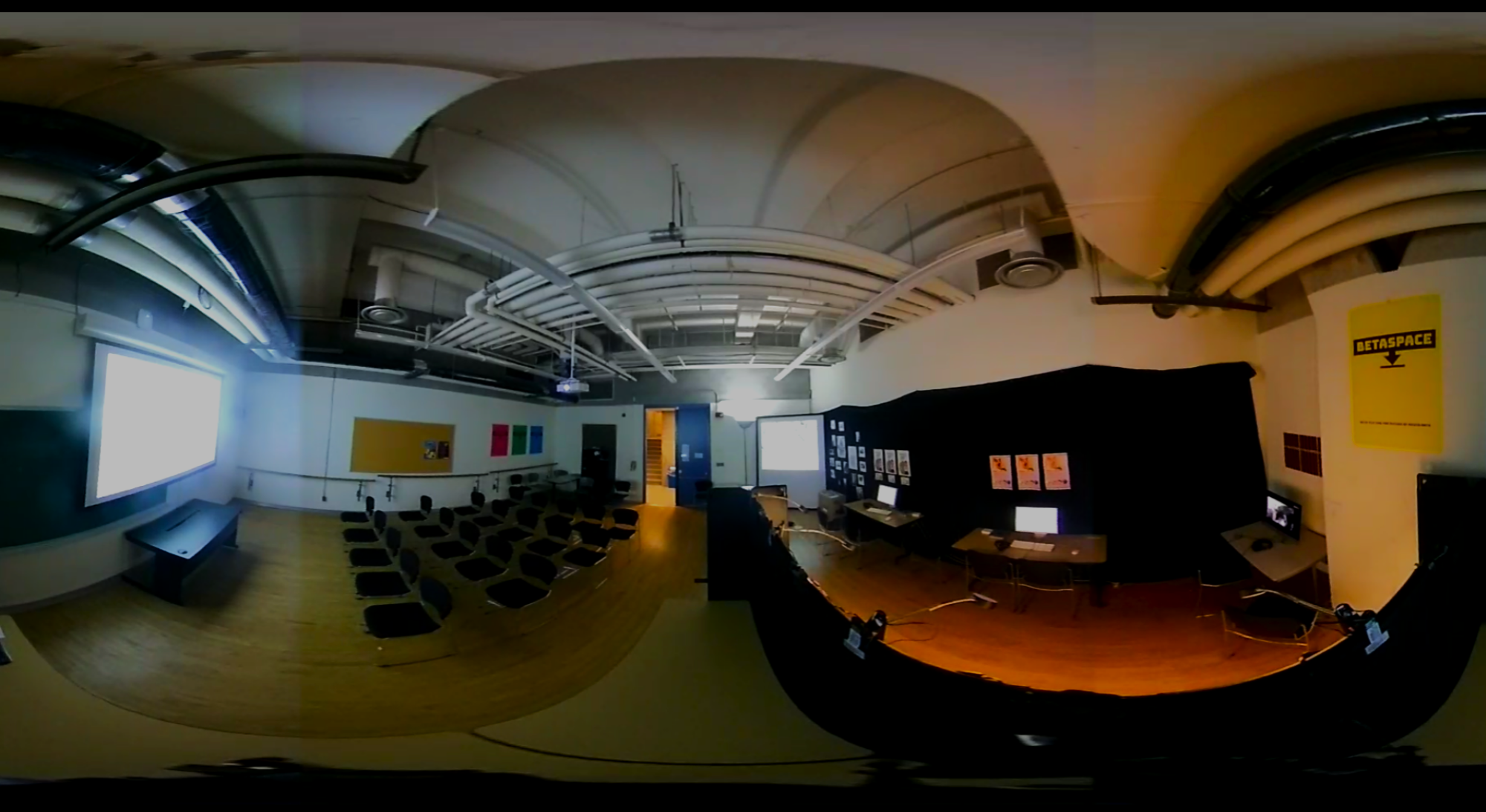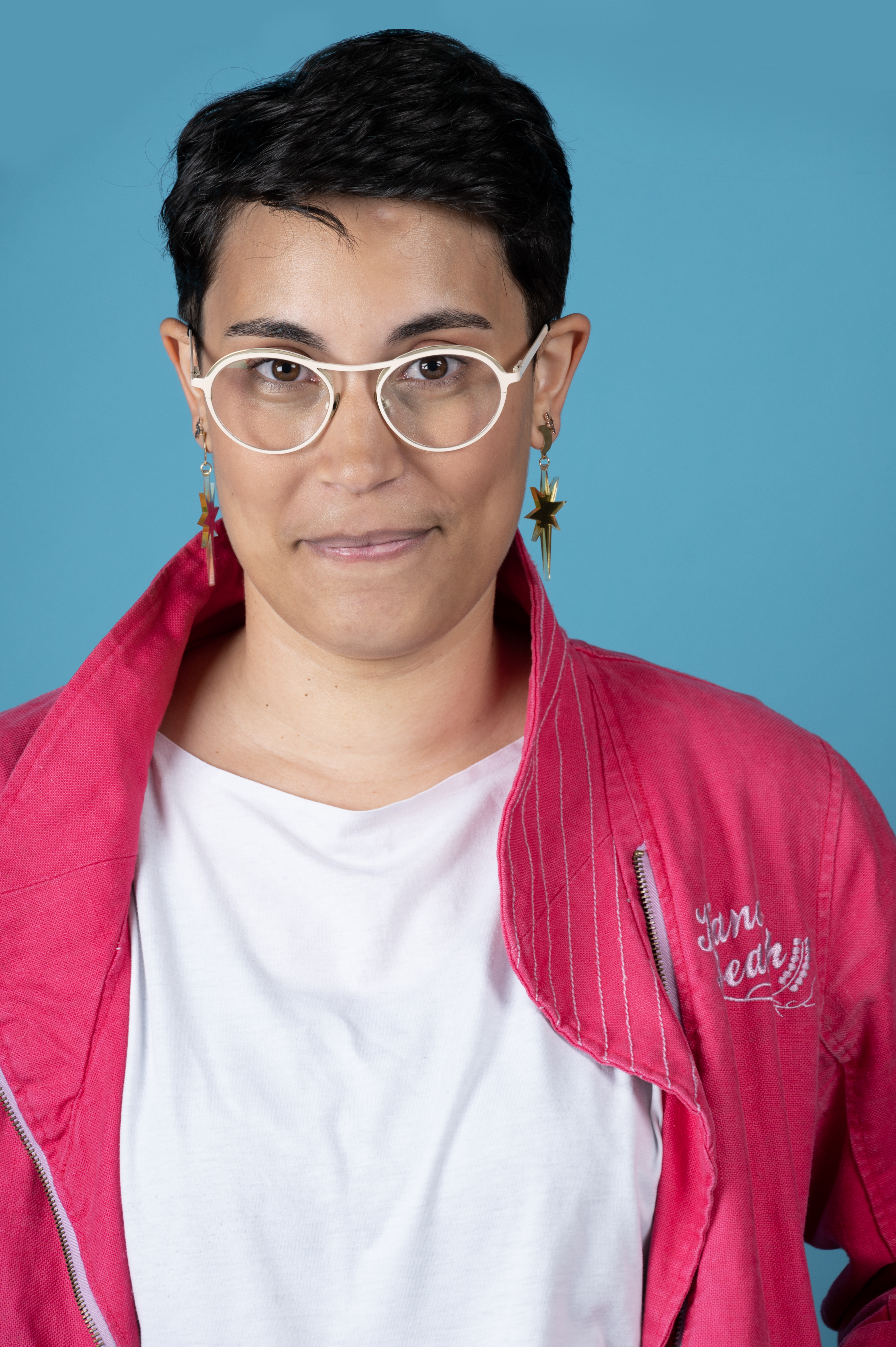
Adrienne Bazir
Contract Faculty
abazir@yorku.ca
Adrienne Bazir (she/they) is a bilingual 2D animator, video game developer, and cartoonist. She loves to dip her fingers in many pies – as long as a medium allows her to tell stories, she’s game. After getting her BFA in Traditional Animation at Columbia College Chicago, she’s worked as a Senior 2D Animator in various studios since 2015, in both the United States and Canada. Alongside her animation work, she runs insertdisc5 Inc., a multimedia studio focused on storytelling. She has written and drawn many comics and zines, mostly digital and sold online. She’s interested in collaborative work, and has participated in works such as Animate-A-Grump, Rhythm Reanimate, and Fat Mermaids: A Collaborative Charity Zine. As an award-winning game developer, she has showcased her games at the Tokyo Game Show, Game Devs of Color Expo, and Hand Eye Society’s Wordplay Festival. Her latest game In Stars and Time, produced by Armor Games Studio, has been featured in the video game press on websites such as Forbes, IGN, NintendoLife, and Denfamico Gamer.
insertdisc5.com

Mary Bunch
Assistant Professor
bunch@yorku.ca
Mary Bunch (she/her) is an Associate Professor in Cinema and Media Arts at York University, and Canada Research Chair in Critical Disability, Vision and the Arts. Her research develops socio-political concepts through media arts creation, informed by critical disability, queer and decolonizing frameworks. Her SSHRC funded projected Pluriveral Worlding with Extended Reality, develops a methodology of transition worldmaking that engages ‘world’ as a frame of reality, as well as being a narrative and aesthetic element of media arts works. She is co-editor of a special issue on Access Aesthetics in the journal Public, and has a monograph-in-progress titled Ecstatic Ethics. Bunch co-Directs the Peripheral Visions CoLab, and is a member of Sensorium Centre for Digital Arts and Technology, the Digital Justice Research Cluster, and Connected Minds: Neural and Machine Systems for a Healthy, Just Society. Dr. Bunch is deeply committed to collaborative and community-based practice that convenes different ways of knowing, from theoretical scholarship and creative practice, to lived experience and embodied perception.
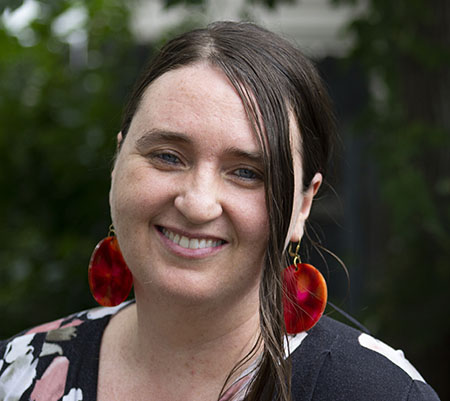
Rebecca Caines
Assistant Professor- Dept. of Theatre
rcaines@yorku.ca
Dr Rebecca Caines (she/her) is an interdisciplinary artist and scholar, whose research crosses between creative technologies (including sound art, new media, and augmentation), and socially engaged art, with a special focus on improvisatory practices. She holds a PhD in Performance Studies from the University of New South Wales, in Sydney, Australia; and completed two postdoctoral research fellowships at the University of Guelph, before moving to University of Regina to help build a new cross faculty program in Creative Technologies. From 2013-201 she was also the director of the Regina Improvisation Studies Centre, a partnered research site and faculty-based research centre at the University of Regina. She also serves on the executive of the International Institute for Critical Studies in Improvisation, a long running, 2.5-million-dollar SSHRC Partnership.
Caines has completed large-scale community-based art and research projects in Australia, Northern Ireland, Canada, China, and the Netherlands. Her publications appear in journals such as Performance Research, Contemporary Music Review, The Canadian Journal of Action Research, Critical Studies in Improvisation, and M/C: Journal of Media and Culture. She also has chapters in several anthologies on performance, community-engagement, and improvisation, published by Duke, Routledge, and Bloomsbury. She is editor (with Ajay Heble) of Spontaneous Acts: The Improvisation Studies Reader (Routledge, 2015).
Her recent projects include “ImprovEnabled”, a national art and research project with co-researchers and partners across Canada, Northern Ireland and Australia. This project investigates creative responses to social isolation and stigma surrounding people with Fetal Alcohol Spectrum Disorder, utilizing improvised digital art and strengths-based participatory research. In 2018, she completed a British Academy Visiting Research Fellowship at the Sonic Arts Research Centre at Queen’s University Belfast, exploring socially responsive immersive audio technologies. She is currently leading the national art project “multiPLAY” focused on new forms of digital community engagement with Canadian improvising artists. Caines’ work investigates the role of art and technology in social justice, contemporary understandings of community, and the fragile promise of ethical connection offered through dialogic approaches. Caines looks forward to helping to build the brand-new Creative Technologies program at York University’s Markham Campus, opening Fall 2023.
Multiplay.ca
Rebeccacaines.org
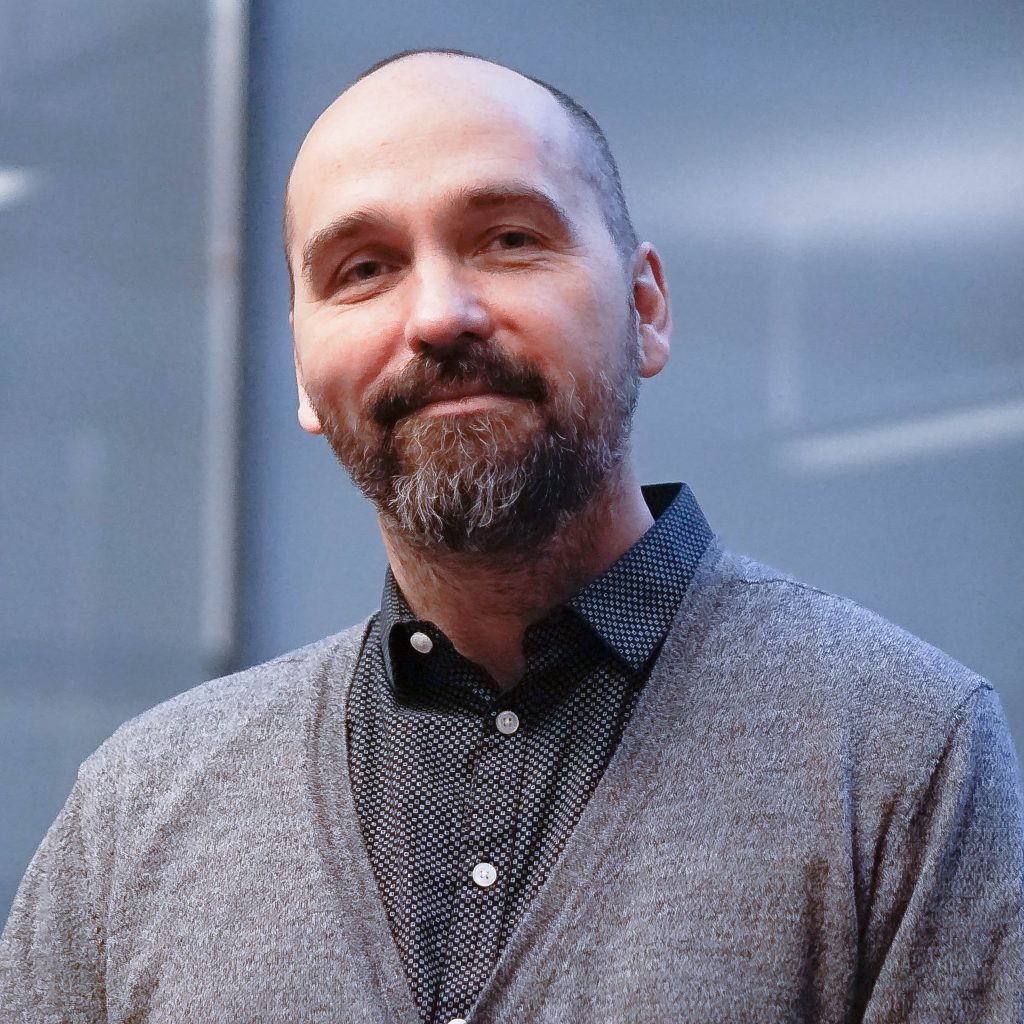
Patricio Davila
Associate Professor
pdavila@yorku.ca
Patricio Dávila (he/him) is a designer, artist, researcher and educator. He is Associate Professor in the Department of Cinema and Media Arts in the School of the Arts, Media, Performance and Design, at York University. He is also core member of the Vision: Science to Applications (VISTA) project at York University. Patricio is also co-director of Public Visualization Lab (PVL). PVL is a networked lab (York U, OCADU, Ryerson U) and focuses on how visualization can operate as a critical design and media practice. A priority for the lab is to understand the ways that the representation of data is political as well as analytical, designerly and creative. A basic premise that guides PVL’s projects is that visualization is an assemblage that arranges people, things and processes and as such demands a commitment to ethics, accountability and meaningful participation.
Patricio’s research and practice focuses on the politics and aesthetics of participation in the visualization of spatial issues with a specific focus on urban experiences, mobile technologies and large-scale interactive public installations. His research focuses on developing a theoretical framework for examining data visualization as assemblages of subjectivation and power. In his creative practice he has created mobile applications, locative media projects, essay videos, new media installations, and participatory community projects including: Shadows!, Powers of Kin, Chthuluscene, Tent City Projections, The Line, and In The Air Tonight. His research and practice also include curatorial projects such as Multiplex Essay Film Festival and the Diagrams of Power exhibition, research events, and book published by Onomatopee Projects (NL).
Select publications include Dávila, P., (Ed.). (2019). Diagrams of Power: Visualizing, Mapping, and Performing Resistance. Onomatopee Projects, Eindhoven, Netherlands; Dávila, P., (2017). Visualization as assemblage: Exploring critical visualization practice. Information Design Journal 23(1); Dávila, P., Colangelo, D., Chan, M., Tu, R. (2017). Expressive Cartography, Boundary Objects and the Aesthetics of Public Visualization. Leonardo 50(5).
publicvisualizationlab.ca
publicvisualizationstudio.co
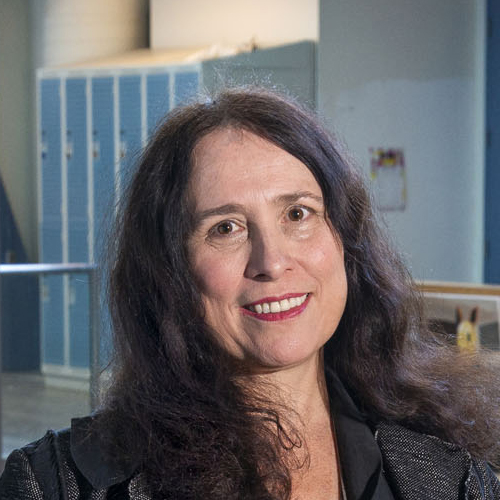
Caitlin Fisher
Professor
caitlin@yorku.ca
Caitlin Fisher’s (she/her) primary research investigates the future of narrative through explorations of interactive storytelling and interactive cinema in Augmented Reality environments. Current research interests also include digital archiving, lifelogging, data visualization and experimental game structures for storytelling.
Professor Fisher was awarded a Canada Research Chair in Digital Culture in 2004. She is a co-founder of the Future Cinema Lab, dedicated to the exploration of new stories for new screens, and director of the Augmented Reality Lab in the Faculty of Fine Arts at York. In the AR Lab, she is working to construct and theorize spatial narrative environments and build expressive software tools for artists.
Dr. Fisher completed one of the first hypertextual dissertations in Canada. Her hypermedia novella, These Waves of Girls, an exploration of memory, girlhood, cruelty, childhood play and sexuality, was awarded the Electronic Literature Organization’s Award for Fiction. In 2008, she won the International Digital Literature Award Ciutat de Vinaròs Prize in Poetry for her augmented reality journey poem, “Andromeda”.
Professor Fisher has taught at York University’s School of Women’s Studies at York and the Institute of Women’s Studies at Carleton University. She received York’s University-Wide Teaching Award in 1999.
caitlinfisher.ca

John Greyson
Associate Professor
greyzone@yorku.ca
John Greyson (he/him) is an award-winning Toronto video/film artist. Since 1984, his many features, shorts and transmedia works use humour and song to explore such queer activist issues as police entrapment, prison, AIDS activism, global solidarity, homo-nationalism and apartheid. The winner of 4 Teddies, 4 Canadian screen awards, and Best Film Prizes in over 50 international festivals, his works include: Death Mask (2023), Door Prize (2023), Photo Booth (2022), International Dawn Chorus Day (2020), Mercurial (2018), Gazonto (2016), Murder in Passing (2013), Fig Trees (2009), Proteus (2003), Lilies (1996), Zero Patience (1993), The Making of Monsters (1991) and Urinal (1989).
Instagram
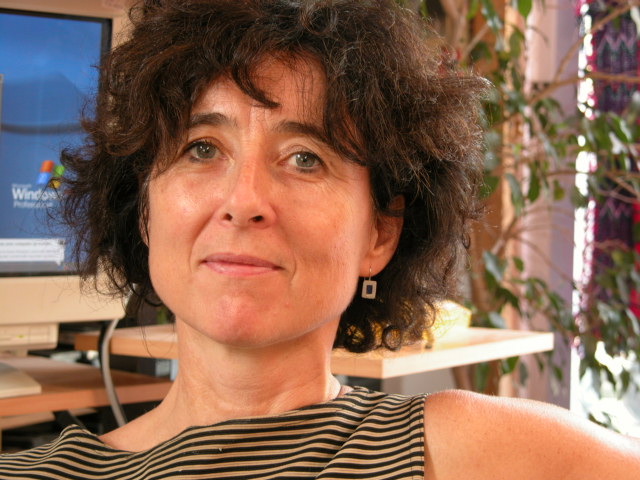
Brenda Longfellow
Professor
brendal@yorku.ca
Professor Longfellow has published articles on documentary, feminist film theory and Canadian cinema in Public, CineTracts, Screen, and the Journal of Canadian Film Studies. She is a co-editor (with Scott MacKenzie and Tom Waugh) of the anthology The Perils of Pedagogy: the Works of John Greyson (2013) and Gendering the Nation: Canadian Women Filmmakers (1992). Her documentaries have been screened and broadcast internationally, winning prestigious awards including the Audience Award for Best Experimental Film for Dead Ducks at the Santa Cruz Film Festival (2011); A Bronze Remi Award for Weather Report at the Houston Film Festival (2008); Best Cultural Documentary for Tina in Mexico at the Havana International Film Festival (2002); a Canadian Genie for Shadowmaker/ Gwendolyn MacEwen, Poet (1998) and the Grand Prix at Oberhausen for Our Marilyn (1988). Other films include Gerda, (1992), A Balkan Journey (1996) and Carpe Diem (2010).
She recently launched the SSHRC funded interactive web documentary OFFSHORE, co-directed with Glen Richards and Helios Design Lab. OFFSHORE may be viewed here.
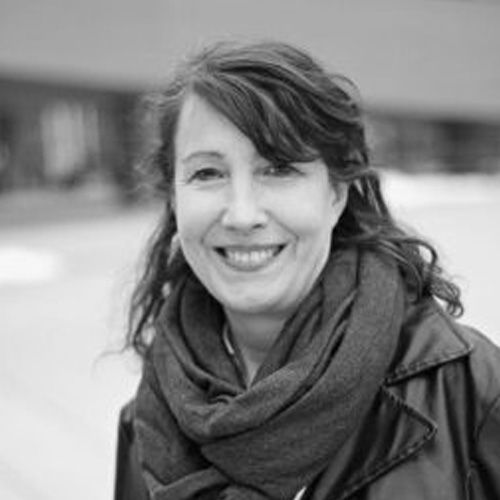
Janine Marchessault
Professor
jmarches@yorku.ca
Janine Marchessault is a professor in Cinema and Media Arts and holds a York Research Chair in Media Art and Social Engagement. Her research has engaged with four areas: the history of large screen media (from multiscreen to Imax to media as architecture and VR); diverse models of public art, festivals, and site specific curation; 21st century moving-image archives and notions of collective memory/history. She is a founder of the Future Cinema Lab, and the 2014-2016 inaugural Director of Sensorium: Centre for Digital Arts Research. A Trudeau Fellow, she is also a Fellow of the Royal Society of Canada.
She belongs to the CinemaExpo67 research group and is a founding member of the Public Access Curatorial Collective. Her latest project is an expanded cinema festival Outer Worlds—commissioning five IMAX films by artists which premiered at the Cinesphere in 2019 as part of Images Festival.
Dr. Marchessault is the PI for Archive/Counter-Archive: Activating Moving Image Heritage (2018-2024 SSHRC Partnership Grant), a research collaboration involving more than 14 community and artist run archives in Canada devoted to diverse histories from Indigenous, LGBTQ, immigrant and women’s histories. Her research explores the afterlife of moving image archives as art forms and new forms of historical knowledge.
Select Publications: Ecstatic Worlds: Media, Utopias and Ecologies (MIT 2017); Cosmic Media: Marshall McLuhan (Sage 2005); and numerous collections including the Oxford Handbook of Canadian Cinema (w/ W. Straw Oxford University Press 2019), Process Cinema: Handmade Film in the Digital Age (w/ S. MacKenzie MQUP 2019), Reimagining Cinema: Film at Expo 67 (w/ M. Gagnon MQUP 2014); Cartographies of Place: Navigating the Urban (w/ M. Darroch MQUP 2014);
Research interests: archives and counter-archives, media materiality, live cinema and real-time, urban space and visual culture, expanded cinema, feminist, queer and post-colonial media, cultural festivals and performance, curatorial studies, theories of spectatorship, phenomenology, history on/through screens, climate change studies.
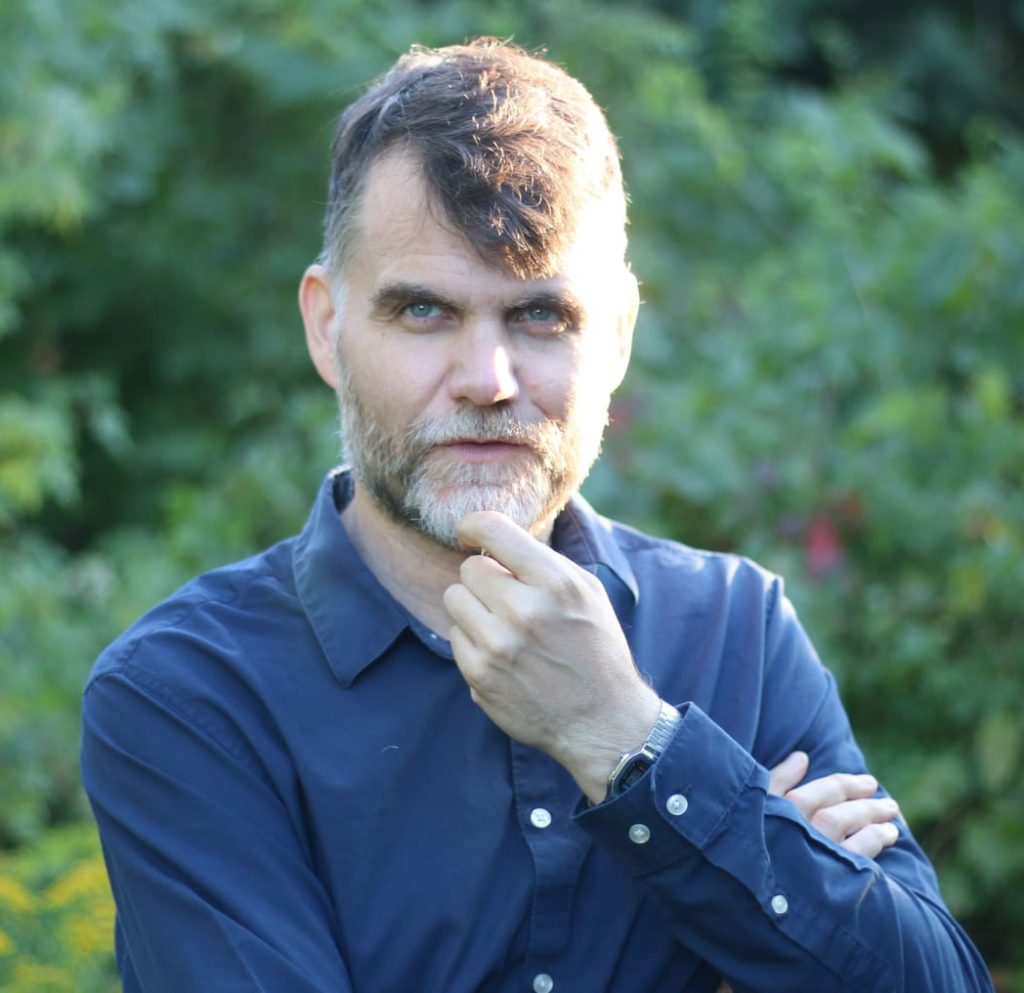
Jim Munroe
Contract Faculty
info@jimmunroe.net
Jim Munroe (he/him) is a “pop culture provocateur” according to the Austin Chronicle. His graphic novels and prose novels have been praised by Pulitzer-winner Junot Diaz and comics legend Neil Gaiman, and his lo-fi sci-fi feature films by Wired and the Guardian. His political videogames have appeared at Sundance and Cannes, and he co-founded the world’s first videogame arts organization. He was an Art Gallery of Ontario Artist-in-Residence in 2014 and he lives in the Junction neighbourhood in Toronto.
jimmunroe.net
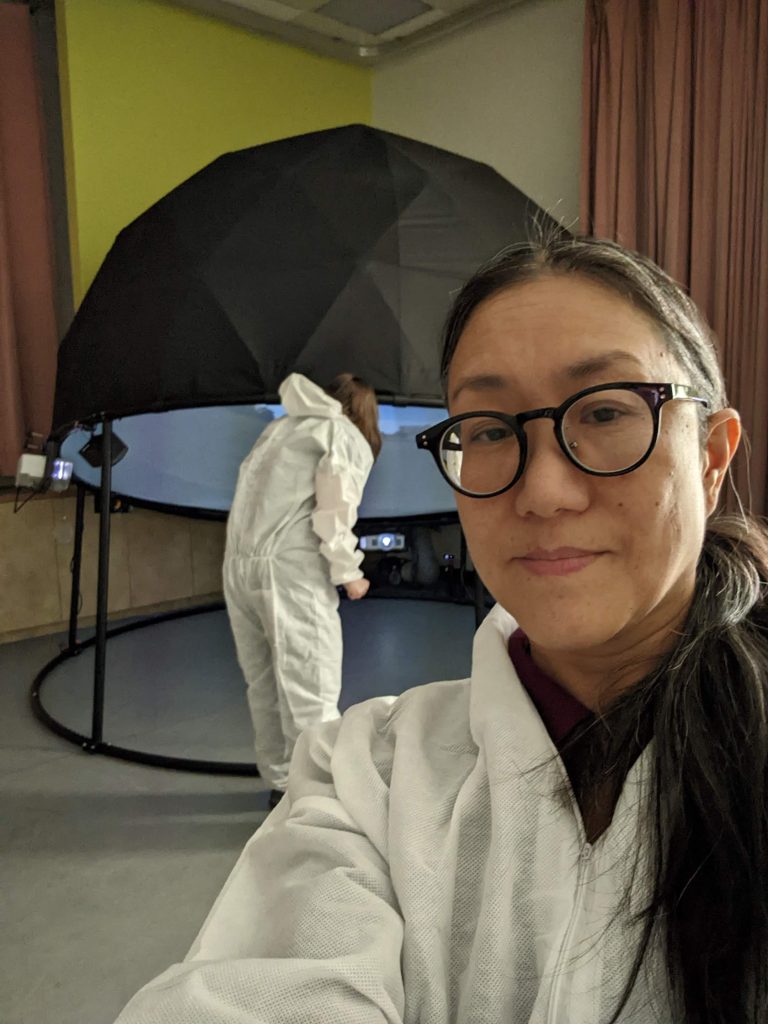
Taien Ng-Chan
Assistant Professor
taien@yorku.ca
Taien Ng-Chan (she/hers) is a writer, media artist, and assistant professor in Cinema and Media Arts at York University. She holds a doctorate from Concordia University’s Centre for Interdisciplinary Studies in Society and Culture (CISSC). In addition to her scholarly work in such publications as Intermediality and Humanities, she has published four books and anthologies of creative writing, produced multimedia arts websites, written drama for stage, screen, and CBC Radio. Her digital media works have been exhibited in conference events, film festivals and galleries across Canada and internationally, including at the Biennale internationale d’art numérique in Montreal, the International Mobile Innovation Screenings in New Zealand, Waterloo’s Lumen Festival, the Art Gallery of Windsor, and the Art Gallery of Hamilton. Dr. Ng-Chan is currently the York Research Chair in Marginal & Emergent Media, and is developing her studio-lab, Marginal MediaWorks, to explore research-creation in Extended Reality (or XR, an umbrella term that includes virtual and augmented realities, geo-located soundscape). She has received numerous grants from SSHRC, the Canada Council for the Arts, the Ontario Arts Council and the Conseil des arts et des lettres du Québec. In 2019, she won the City of Hamilton Arts Award for Media Arts, as well as the AMPD Junior Faculty Teaching Award; in 2022 she was awarded the President’s Emerging Research Leadership Award. She is Co-Director (with Prof. Carmela Laganse at McMaster University) of the Sari-Sari Xchange Project, which partners with the Toronto Reel Asian International Film Festival, Tangled Art+Disability, and Centre[3] for Social+Artistic Practice to explore community-building through XR media creation.
soyfishmedia.com

Kenneth Rogers
Associate Professor
krogers1@yorku.ca
Ken Rogers (he/him) is Co-Director of the MBA Program in Arts, Media and Entertainment at the Schulich School of Business and Associate Professor of Cinema and Media Arts at York University. He is Director of the the Cinespace Motion Media Studio, a 6,000 sq. ft, cutting-edge film studio in the heart of Cinespace’s Kipling facility, a partnership offering unique experiential education opportunities to York film and media students. He was formerly Associate Dean, Research at the School of the Arts, Media, Performance, and Design (AMPD) at York University (2015-2020). He is the author of The Attention Complex and has also published extensively on the social and cultural impact of emerging media technology. He is appointed to the Film, Television and Digital Media Advisory Board for the city of Toronto. He sits on the steering committee of Digital Media at the Crossroads, an organization and annual conference devoted to rethinking global media policy. Ken sits on York’s Pan-University Strategic Entrepreneurship Council at Innovation York. He is a founder and a core faculty member of AMPD’s new BFA in Media Arts. Established in 2017 the BFA in Media Arts is an academic program focused on expanded skills, work placements, and workforce development for the media and entertainment industries. He also teaches courses in film, television, digital media, game studies, media industry studies, and media and media cultural policy.
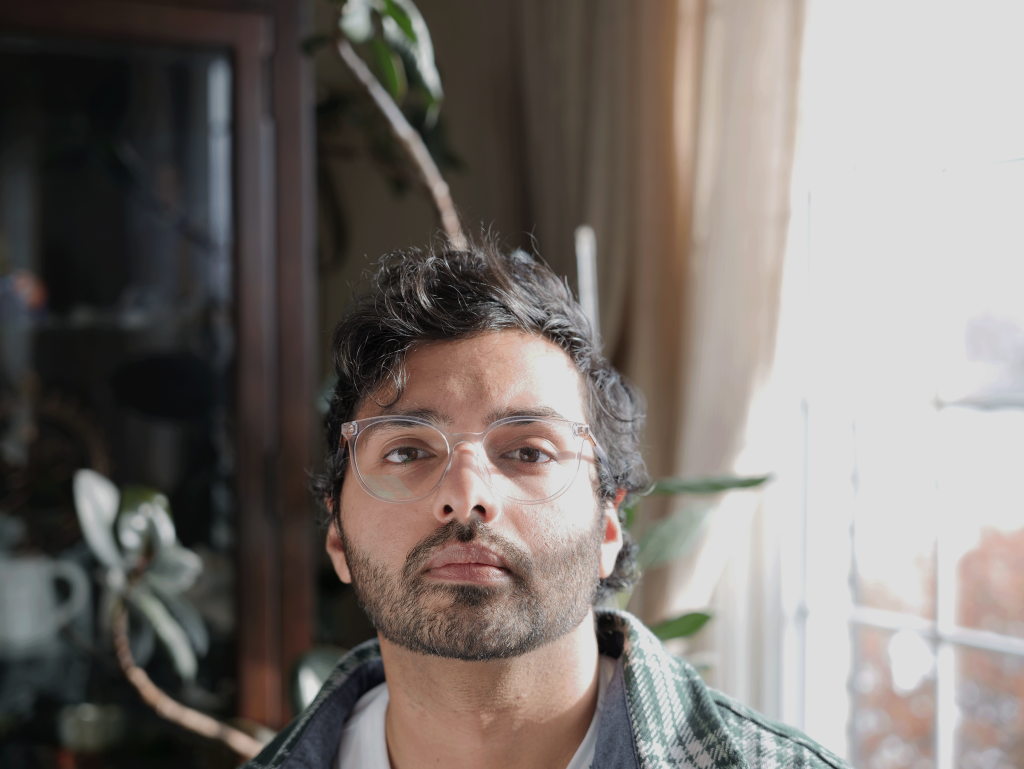
Jonathan Silveira
Contract Faculty
jsilveir@yorku.ca
Jonathan Silveira (he/him) is a media artist, designer, and educator from Toronto, Ontario. He holds a Master’s degree in Digital Media from York University, alongside a Bachelor’s degree in Graphic Design from OCAD University. Jonathan’s work is focused on using creative coding and game engines to develop immersive narratives, with a particular emphasis on real-time rendering, interaction and artificial life. Jonathan’s research interest lies in the utilization of game engines and simulations to model complex behaviours with artificial life ecosystems. These explorations are inspired by the role of algorithms in the emergence of radicalization, conspiracy theories, and anti-scientific rhetoric on social media networks.
Jonathan is also an instructor in the Digital Futures faculty at OCAD University and a collaborator with the Public Visualization Lab / Studio (PVL/S), a cross-institutional research lab with members from YorkU, OCADu, and Toronto Metropolitan University. His contributions at the PVL/S entail producing content and tools for artists, designers, and communities for public installations and exhibitions.
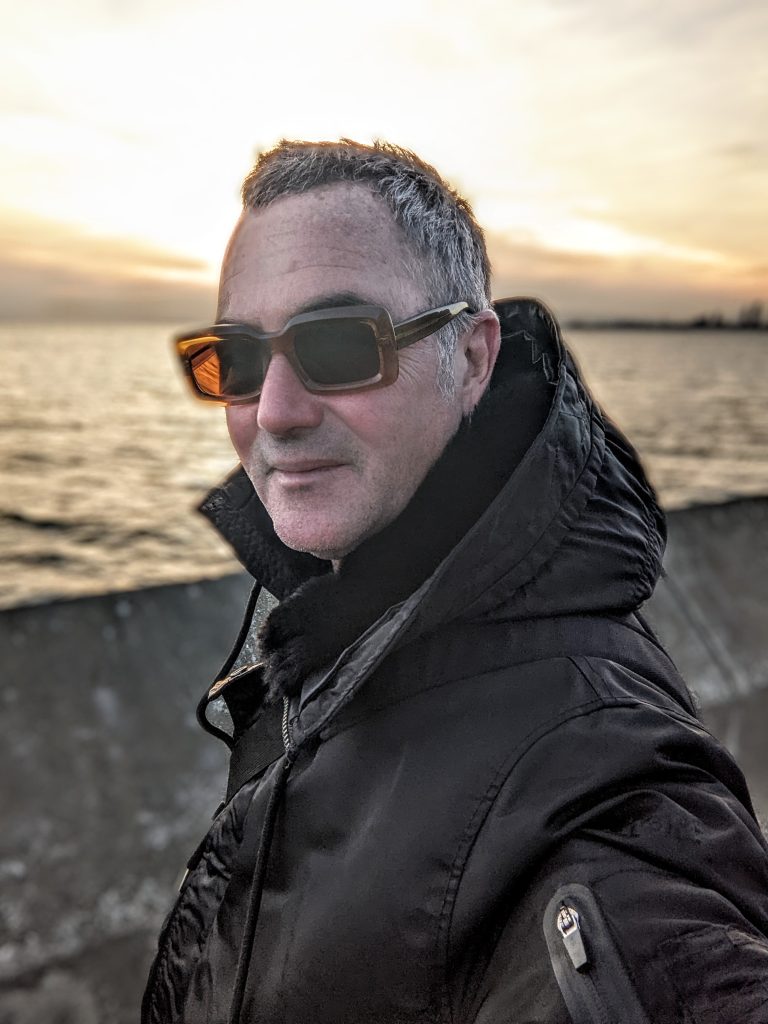
Michael Trommer
Contract Faculty
mtrommer@yorku.ca
Michael Trommer (he/him) is a Toronto-based sound and video artist; his practice has been focused primarily on psychogeographical and acoustemological explorations of anthropocentric space via the use of spatial and tactile sound, field recordings, VR, immersive installation and expanded cinema.
He has released material on an unusually diverse roster of labels, both under his own name as well as ‘sans soleil’. These include Transmat, Wave, Ultra-red, and/OAR, Audiobulb, Audio Gourmet, Gruenrekorder, Impulsive Habitat, Stasisfield, Serein, Flaming Pines, 3leaves, Unfathomless and con-v. His audio-visual installation work has been exhibited at Australia’s Liquid Architecture festival, Kunsthalle Schirn in Frankfurt, Cordoba’s art:tech, St. Petersburg’s Gamma Festival, and Köln’s soundLAB, among others.
Michael has performed extensively in North America, Europe and Asia, including events with members of Berlin’s raster-noton collective, as well as the 2008 and 2013 editions of Mutek’s acclaimed a/visions series. He also regularly improvises with Toronto-based AI audio-visual collective ‘i/o media’.
His sound design work encompasses composition, audio branding, installation and VR audio for clients such as Moment Factory, Intel and Yahoo, as well as soundtrack and production development for a variety of international cinema, dance and installation artists.
In addition to teaching graduate sound design and sound art at George Brown College, Michael also teaches Sound Film at Toronto Metropolitan University, Think Tank at OCAD University and Media Practice and Sonic Cinema at York University, where he is currently a PhD candidate and SSHRC Joseph-Armand Bombardier doctoral scholar in Cinema and Media Art.
Instagram
michaeltrommer.blogspot.com
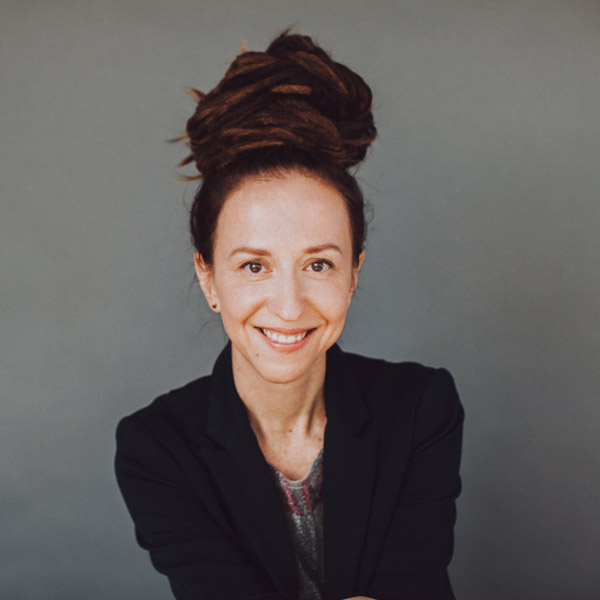
Ingrid Veninger
Assistant Professor
ingridv@yorku.ca
Ingrid Veninger (she/her) holds an MFA from York University and has been a full-time faculty member in the Department of Cinema and Media Arts since 2019. Born in Bratislava and raised in Canada, Ingrid has produced fifteen feature films with premieres at TIFF, Rotterdam, Locarno, Busan, Slamdance, Whistler, Rome, Hot Docs, Karlovy Vary and MoMA in New York, amongst others. Ingrid received the WIFTS International Visionary Award, the Alliance of Women Film Journalists EDA Award for “Best Director” and the Jay Scott Prize awarded by the Toronto Film Critics Association with retrospectives in Ottawa at the Canadian Film Institute and Santiago, Chile at FEMCine. A Director member of the Directors Guild of Canada and participant in the inaugural TIFF Studio, Berlinale Talents, and Rotterdam Producer’s Lab, Ingrid has been a mentor at the Canadian Film Centre and Screenwriter-in-Residence at the University of Toronto. An advocate for gender parity, Ingrid initiated the pUNK Films Femmes Lab to foster narrative feature films written and directed by Canadian women, sponsored by Academy Award winner Melissa Leo. On April 1, 2020, she launched a collaborative feature film project, ONE(NINE) wherein 9 women filmmakers from different parts of the world (China, USA, Germany, Spain, South Africa, and across Canada) co-created a feature film and interactive web project, in response to the Covid-19 pandemic. Currently, Ingrid is in post-production on her latest feature, THIS FILM DOES NOT WANT A TITLE, which will begin its film festival tour in 2024. Research interests: DIY-based methodologies, collective creation, authentic leadership, hybrid cinema and new pedagogical modalities.
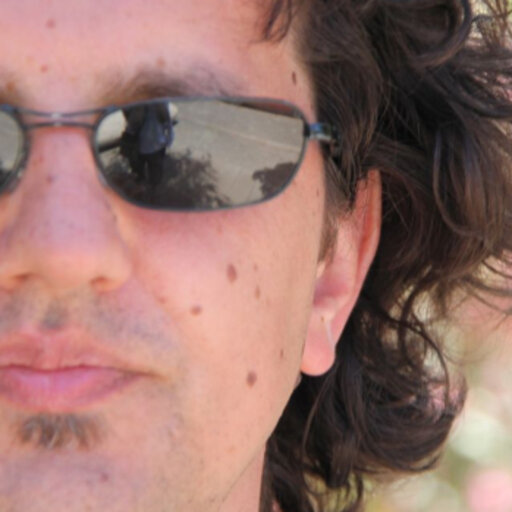
Tony Vieira
Contract Faculty
vieirat1@yorku.ca
Tony Vieira holds a PhD in Ethnomusicology from York University.
His work in Augmented Reality (MOTHER|HOME|HEAVEN, Vessels of Memory, Can You See What I Hear?), Virtual Reality (Nightmares for Children), Hypermedia Narrative (FRACTALIZE 1: I’ve Loved You from Afar) and Locative Media (The Chez, Strathroy Stories, Thing of Shapes to Come) has been exhibited at festivals and conferences in Canada, United States, Portugal, Norway, Italy, and Ireland.
His research and creative practice explores sound and placemaking, augmented aurality, XR storytelling, and experiential narratives. Since 2020 he has been working with Six Nations of the Grand River as Immersive Storytelling Producer on Ohneganos: Water is Life, a VR project and educational tool for Haudenosaunee youth that explores water insecurity on Indigenous reserves and the Haudenosaunee Creation Story of Turtle Island.
